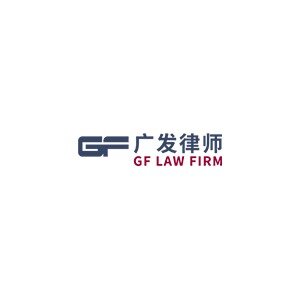Best Lawsuits & Disputes Lawyers in Hangzhou
Share your needs with us, get contacted by law firms.
Free. Takes 2 min.
List of the best lawyers in Hangzhou, China
China Lawsuits & Disputes Legal Articles
Browse our 1 legal article about Lawsuits & Disputes in China written by expert lawyers.
- Can You Enforce a Foreign Court Judgment in China? A Guide
- China now offers more reliable tools to chase assets, including a powerful Asset Reporting Order that forces judgment debtors to disclose their property or face fines, detention, or even criminal exposure. Enforcing foreign court judgments in China is still harder than enforcing arbitral awards, but recent Supreme People's Court (SPC)... Read more →
About Lawsuits & Disputes Law in Hangzhou, China
Lawsuits and disputes in Hangzhou are governed by the laws of the People's Republic of China, which include a wide array of statutes, regulations, and judicial interpretations. These legal mechanisms are designed to resolve civil, commercial, and some public law disputes. Hangzhou, as a major city in the Zhejiang Province, is subject to both national laws and local regulations that can influence the proceedings and outcomes of legal actions. Courts in Hangzhou handle cases involving contracts, torts, property disputes, corporate conflicts, and more.
Why You May Need a Lawyer
Legal representation is often crucial in lawsuits and disputes due to the complexity of Chinese legal procedures and the importance of understanding substantive laws. Common situations necessitating a lawyer include business disagreements, intellectual property infringements, real estate disputes, family law matters such as divorce and inheritance issues, and labor disputes. Lawyers are adept at navigating the procedural intricacies of the court system, representing your interests throughout negotiations, and ensuring the protection of your legal rights.
Local Laws Overview
Hangzhou's local laws align with China's legal framework but can include municipal regulations pertinent to the region. Key aspects of local laws include the Civil Procedure Law, which governs how civil suits are filed and adjudicated, and the General Principles of Civil Law that outline civil rights and obligations. The Contract Law applies to disputes arising out of contractual relationships while the Real Right Law deals with property rights and related disputes. Moreover, specific regulations may govern employment, family, and consumer protection issues within Hangzhou.
Frequently Asked Questions
What is the statute of limitations for filing a lawsuit in Hangzhou?
The statute of limitations in China generally ranges from one to three years, depending on the type of dispute, with some exceptions. It is advisable to consult with a lawyer for the particular limitation period applicable to your case.
Can foreign individuals or companies file a lawsuit in Hangzhou?
Yes, foreign individuals and entities can initiate legal proceedings in Hangzhou courts, provided they adhere to Chinese law. They may also be subject to certain procedural rules that apply to foreign parties.
Are mediation or arbitration available for resolving disputes in Hangzhou?
Yes, mediation and arbitration are recognized and encouraged in Hangzhou as alternative dispute resolution methods. These are often quicker and more cost-effective than court litigation.
Can I represent myself in court, or must I hire a lawyer?
While self-representation is allowed, hiring a lawyer is highly recommended due to the complexities of the legal system and potential language barriers.
What are the typical costs associated with filing a lawsuit in Hangzhou?
Costs may include court fees, attorney's fees, and additional expenses such as expert witness fees and translation services. These can vary widely based on the complexity of the case.
How long does a lawsuit typically take in Hangzhou?
The duration of a lawsuit in Hangzhou can vary from a few months to several years, depending on factors like the case complexity, court caseload, and the efficiency of the involved parties.
Can a judgment from a Hangzhou court be enforced overseas?
In some cases, yes, through international treaties or reciprocal arrangements between China and other countries. However, enforcement can be complex and is not guaranteed.
Are there any special considerations for intellectual property disputes in Hangzhou?
Yes, intellectual property disputes are often technical and may involve specific procedural rules. Hangzhou is active in tech and innovation, so local courts are equipped to handle such disputes.
How are divorce and family disputes handled in Hangzhou?
Family disputes, including divorce, child custody, and alimony, are handled by the Family Affairs Court, where mediation is commonly used before litigation is pursued.
Can labor disputes be taken to court in Hangzhou?
Yes, after exhausting the mandatory arbitration process, labor disputes can be taken to court if a resolution is not achieved during arbitration.
Additional Resources
For individuals seeking further assistance with lawsuits and disputes in Hangzhou, the Hangzhou Municipal Justice Bureau and the Legal Aid Center of Hangzhou provide access to legal information and services. Additionally, the China International Economic and Trade Arbitration Commission (CIETAC) may assist with commercial arbitration matters. Professional lawyer associations and local law firms can also be valuable resources.
Next Steps
If you need legal assistance in Hangzhou with regards to lawsuits and disputes, begin by clearly documenting all relevant facts and evidence related to your case. Next, consider consulting with local lawyers or law firms specializing in your specific type of dispute. They can offer an initial consultation to assess your case and guide you on the best course of action. Remember to act promptly to ensure compliance with legal time limits and to preserve your legal rights.
Lawzana helps you find the best lawyers and law firms in Hangzhou through a curated and pre-screened list of qualified legal professionals. Our platform offers rankings and detailed profiles of attorneys and law firms, allowing you to compare based on practice areas, including Lawsuits & Disputes, experience, and client feedback.
Each profile includes a description of the firm's areas of practice, client reviews, team members and partners, year of establishment, spoken languages, office locations, contact information, social media presence, and any published articles or resources. Most firms on our platform speak English and are experienced in both local and international legal matters.
Get a quote from top-rated law firms in Hangzhou, China — quickly, securely, and without unnecessary hassle.
Disclaimer:
The information provided on this page is for general informational purposes only and does not constitute legal advice. While we strive to ensure the accuracy and relevance of the content, legal information may change over time, and interpretations of the law can vary. You should always consult with a qualified legal professional for advice specific to your situation.
We disclaim all liability for actions taken or not taken based on the content of this page. If you believe any information is incorrect or outdated, please contact us, and we will review and update it where appropriate.
Browse lawsuits & disputes law firms by service in Hangzhou, China
Hangzhou, China Attorneys in related practice areas.












